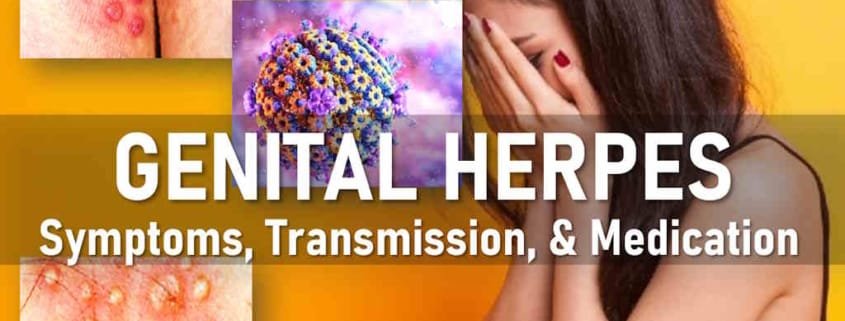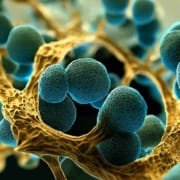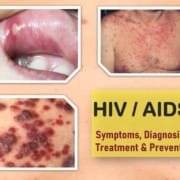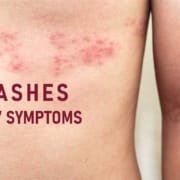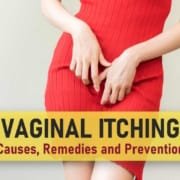Genital Herpes: Symptoms, Pictures, and Medication
Genital herpes is caused by two types of herpes simplex virus: HSV-1 and HSV-2. While HSV-1 is typically associated with cold sores around the mouth (oral herpes), it can also cause genital infections through oral-genital contact. HSV-2, on the other hand, is primarily responsible for genital herpes.
Once infected, the virus travels to nerve tissues in the body, where it can lie dormant. Reactivations, or outbreaks, can occur, leading to the recurrence of blisters and sores. Genital herpes is highly contagious and can be transmitted even when symptoms are not present.
What is Genital Herpes?
Genital herpes is a common sexually transmitted infection (STI) caused by the herpes simplex virus (HSV). This infection is primarily transmitted through sexual contact. It can result in painful blisters and, during the initial outbreak, may also include symptoms such as fever, body aches, and swollen lymph nodes.
There are two main types of herpes simplex viruses:
- HSV-1: Typically causes blisters and ulcers around the mouth, known as cold sores (oral herpes). However, HSV-1 can also lead to genital herpes through oral sex.
- HSV-2: Primarily responsible for genital herpes, leading to blistering lesions in the genital area.
Although HSV-1 is commonly associated with oral infections and HSV-2 with genital infections, both types can affect either the mouth or genital areas. When genital herpes is caused by HSV-1, it is referred to as genital HSV-1 (GHSV-1). Conversely, oral herpes caused by HSV-2 is known as oral HSV-2 (OHSV-2). The number indicates the strain of the virus rather than its location.
After the initial outbreak, the herpes virus travels along the nerves and becomes dormant in nerve tissue. The virus can reactivate periodically, causing recurrent outbreaks of blisters.
How Common is Genital Herpes?
Genital herpes remains one of the most common sexually transmitted infections (STIs) worldwide.
- Worldwide: According to the World Health Organization (WHO):
- An estimated 3.7 billion people under age 50 (67% globally) have herpes simplex virus type 1 (HSV-1), the main cause of oral herpes.
- About 491 million people aged 15–49 (13% worldwide) are infected with herpes simplex virus type 2 (HSV-2), the main cause of genital herpes.
- Globally, there are over 23 million new cases reported annually.
- In United States:
- Approximately 1 in 6 people aged 14 to 49 in the United States have HSV-2, the virus primarily responsible for genital herpes.
- In the United States, there are an estimated 776,000 new genital herpes infections annually.
- In the United States, HSV is one of the leading causes of genital ulcers.
- Women are more likely to contract genital herpes than men, partly due to more efficient transmission from men to women.
- Approximately 85% to 90% of infections go unrecognized and undiagnosed.
How is Genital Herpes Transmitted?
Genital herpes is transmitted through direct skin-to-skin contact during vaginal, anal, or oral sex. The virus can be passed on even when sores are not visible. It can also be transmitted through genital contact with someone who has oral HSV-1, leading to genital HSV-1 infections.
Transmission can occur in the following ways:
- Vaginal, anal, or oral sex with an infected person.
- Skin-to-skin contact with an infected area.
- Contact with infected saliva or genital secretions.
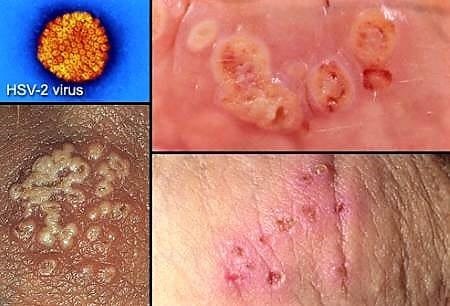
Symptoms of Genital Herpes
Many people with genital herpes may not exhibit noticeable symptoms, or they may mistake them for another condition. When symptoms do occur, they can include:
- Painful fluid-filled blisters or sores around the genital, anal, or thigh areas.
- Tingling, burning, or itching around the genitals.
- Pain during urination.
- Unusual genital discharge.
- Flu-like symptoms during the first outbreak, including fever, chills, body aches, and swollen lymph nodes.
The initial outbreak is often the most severe, with blisters taking 2 to 4 weeks to heal. Subsequent outbreaks are usually milder and shorter in duration.
Diagnosing Genital Herpes
If you suspect you have genital herpes, it’s essential to seek medical advice. Diagnosis is typically made through:
- Physical examination of sores and blisters.
- Swab tests (viral culture or PCR) from a blister or sore.
- Blood tests to detect antibodies to HSV.
Early diagnosis and treatment can help manage symptoms and reduce the risk of transmission.
Treatment and Management of Genital Herpes
Genital herpes treatment is designed to alleviate symptoms and reduce the duration of outbreaks. The disease often resolves on its own within about 19 days, even without treatment. However, antiviral medications can help to speed up recovery and reduce symptoms. Treatments are typically categorized as either primary or non-primary. Primary infection is when the individual is experiencing their first outbreak (previously seronegative for HSV). Secondary (or non-primary) is an infection in a patient with preexisting immunity
Antiviral Medications:
- Acyclovir:
- Forms: Available as topical, oral, and intravenous (IV) formulations.
- Usage:
- For primary herpes genitalis: 400 mg orally three times daily for 7 to 10 days.
- For severe primary cases: 5 mg/kg IV daily for 5 to 7 days.
- For recurrent cases (less than 5 to 6 episodes/year): 400 mg orally twice daily for 3 days.
- For prophylaxis: 400 mg orally twice daily for 6 months.
- Benefits: Effective against all herpesviruses, well-tolerated with a low side effect profile. Can prevent or delay up to 80% of recurrences and reduce viral shedding by over 90%.
- Side Effects: Potential for kidney toxicity and neutropenia at high doses. Resistance can develop in some patients, particularly those with weakened immune systems.
- Valacyclovir:
- Forms: Oral tablets.
- Usage:
- For primary herpes genitalis: 500 mg orally twice daily for 7 to 10 days.
- For recurrent cases (less than 5 to 6 episodes/year): 500 mg orally twice daily for 3 days or 1000 mg orally daily for 5 days.
- For prophylaxis: 500 mg orally daily for 6 months.
- Benefits: Improved bioavailability compared to acyclovir, which enhances effectiveness.
Topical Treatments: Creams and ointments may provide some relief but are generally less effective than oral medications.
Pain Management: Over-the-counter pain relievers and topical pain relief creams can help alleviate discomfort.
Emerging Treatments:
- New Medications: Investigational drugs such as brincidofovir and maribavir are in development. Valomaciclovir is another promising option with activity against HSV, VZV, and EBV.
- Essential Oils: Certain essential oils, like peppermint oil, tea tree oil, and eucalyptus oil, have shown antiviral activity against HSV. Peppermint oil, in particular, demonstrated 99% antiviral activity in studies. However, these oils are more effective when used as a chronic suppressive treatment rather than for acute outbreaks.
Vaccinations for Genital Herpes
Currently, no vaccine is available for herpes simplex virus (HSV). Research is ongoing to develop vaccines that could reduce symptom severity and speed up the healing of visible lesions. These vaccines aim to decrease viral shedding and improve overall management of the infection, similar to the benefits observed with the Varicella-zoster vaccine.
Complications of Genital Herpes
Genital herpes, particularly caused by HSV-2, can lead to several serious complications:
- Increased Risk of HIV Infection: Genital HSV-2 infection is associated with a heightened risk of contracting HIV. Consequently, testing for HIV may be recommended as part of the management plan for individuals with HSV-2.
- Nervous System Involvement: Untreated HSV-2 can affect the nervous system, potentially causing meningitis. While aseptic meningitis is observed in 36% of women and 13% of men with genital herpes, it can lead to hospitalization for some individuals. Symptoms may include headaches, neck stiffness, and a low-grade fever during the initial herpes outbreak.
- Diagnosis: If these systemic symptoms are present, a lumbar puncture should be performed to analyze cerebrospinal fluid (CSF). CSF analysis often shows lymphocytic pleocytosis. While viral cultures can be conducted, polymerase chain reaction (PCR) is the preferred diagnostic method for detecting the herpes virus.
- Acute Retinal Necrosis: This severe condition may present with redness, pain around the eyes, and impaired vision. Examination typically reveals episcleritis or scleritis and retinal necrosis with possible retinal detachment. Acute retinal necrosis can occur alongside HSV-2 meningoencephalitis, complicating the clinical picture.
Recognizing and addressing these complications promptly is crucial for effective management and prevention of further health issues.
Prognosis
Currently, there is no cure for HSV-2, and the virus remains in the body for life once acquired. However, early recognition of symptoms and prompt initiation of antiviral therapy can help control and suppress viral replication, reducing the severity and duration of outbreaks.
To minimize the risk of transmitting the virus to a partner who does not have HSV-2, it is crucial to practice abstinence during periods of known viral shedding.
Herpes viruses, including HSV-2, can lead to significant neurological complications, and ongoing management is essential to mitigate these risks. Despite treatment, HSV-2 persists in the body for the duration of a person’s life.
Managing Genital Herpes During Pregnancy
Pregnant women with genital herpes should take special precautions to prevent transmission to their baby:
- Antiviral Medication: Pregnant women with recurrent genital herpes may be prescribed antiviral medication from 36 weeks until delivery to reduce the risk of an outbreak during labor.
- Cesarean Delivery: If a woman has a primary active outbreak during labor, a cesarean delivery may be recommended to prevent transmission to the baby.
Neonatal herpes, though rare, can be severe and requires immediate medical attention.
Preventing Genital Herpes
While it’s not always possible to prevent genital herpes, certain measures can reduce the risk:
- Condom Use: Using condoms during vaginal, anal, and oral sex can lower the risk of transmission, though it does not eliminate it entirely.
- Avoiding Sexual Activity During Outbreaks: Refrain from sexual activity when experiencing symptoms or during a prodrome (tingling or itching before an outbreak).
- Antiviral Medication: Daily antiviral medication can reduce viral shedding and the risk of transmission.
Living with Genital Herpes
Managing genital herpes involves both medical treatment and lifestyle adjustments:
- Stay Informed: Understanding triggers such as stress, illness, and hormonal changes can help manage outbreaks.
- Practice Good Hygiene: Keep affected areas clean and dry, and avoid tight clothing that may irritate sores.
- Communicate with Partners: Open communication with sexual partners about the condition and preventive measures is crucial.
Frequently Asked Questions (FAQ) about Genital Herpes
Is there a permanent cure for genital herpes?
There is no cure for genital herpes. However, antiviral medications can manage symptoms and reduce the frequency of outbreaks.
What are the most effective ways to prevent transmitting genital herpes to a sexual partner?
Using condoms, avoiding sexual activity during outbreaks, and taking daily antiviral medication can help reduce the risk of transmission.
Can women with genital herpes have a safe pregnancy and delivery?
Yes, with proper medical management, women with genital herpes can have a healthy pregnancy. Antiviral medication may be prescribed, and cesarean delivery may be recommended during active outbreaks.
What are the common triggers for genital herpes outbreaks, and how can they be avoided?
Common triggers include stress, illness, hormonal changes, ultraviolet light, and friction in the genital area.
What are the most effective methods for managing pain during a herpes outbreak?
Pain can be managed with over-the-counter pain relievers, topical pain relief creams, and by keeping the affected area clean and dry.
Can genital herpes be contracted through non-sexual contact in daily life?
Genital herpes is primarily transmitted through sexual contact. It is unlikely to be contracted through non-sexual means such as using cutlery or cups.
Is genital herpes curable with modern medical treatments?
Despite advancements in medical science, genital herpes remains incurable. However, antiviral medications can effectively manage symptoms, reduce the frequency and severity of outbreaks, and lower the risk of transmission. Research into potential cures is ongoing, but currently, treatment focuses on management rather than cure.
How can I differentiate between genital warts and genital herpes?
While both are sexually transmitted infections, genital warts and herpes have distinct differences. Genital warts typically appear as flesh-colored bumps, while herpes causes red blisters that then burst and scab over. Genital warts are caused by certain strains of Human Papillomavirus (HPV), while herpes is caused by Herpes Simplex Virus (HSV). Herpes outbreaks often involve pain, itching, and flu-like symptoms, which are not typical with genital warts. Herpes outbreaks recur periodically, while warts may resolve on their own or with treatment. Always consult a healthcare provider for an accurate diagnosis, as visual inspection alone can be unreliable.
Is HPV the same as genital herpes?
No, HPV (Human Papillomavirus) and genital herpes are different infections. HPV can cause genital warts and is associated with certain cancers, but many strains cause no visible symptoms. Genital herpes is caused by Herpes Simplex Virus (HSV) and typically causes recurrent outbreaks of painful blisters. They are caused by different viruses, have different symptoms, and require different management approaches. It’s possible to have both infections simultaneously, so proper testing and diagnosis by a healthcare provider are crucial.
Is it safe to kiss someone who has genital herpes?
Kissing someone with genital herpes is generally considered low risk for transmission of genital herpes. Genital herpes is typically caused by HSV-2, which prefers the genital region, while oral herpes, which can be transmitted through kissing, is typically caused by HSV-1. However, either virus can infect either area, so there’s a small risk. The risk is higher if the person has active sores in or around the mouth. It’s always best to have open communication with partners about STI status and to avoid intimate contact during active outbreaks. Remember, while these answers provide general information, it’s always best to consult with a healthcare provider for personalized medical advice and accurate diagnosis.
Conclusion
Genital herpes is a common and manageable STI. With proper understanding, treatment, and preventive measures, individuals with genital herpes can lead healthy, fulfilling lives. If you suspect you have genital herpes, consult a healthcare provider for accurate diagnosis and appropriate treatment. Open communication with partners and consistent medical care are key to managing the condition effectively.

